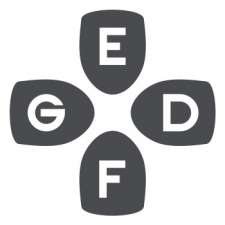The furore over Unity’s recent announcementthey would begin charging install fees for games made with their tools not even begun to peak. Now the European Game Developers Federation has weighed in and leveraged the news to call for more regulatory scrutiny.
In a statement released by the EGDF they decry Unity’s purportedly monopolistic practices, and cast a shadow of doubt over the skills many game development students have honed on the back of Unity’s engine.
“Bigger game developer studios have the luxury of being able to develop their own game engines. Consequently, market uncertainty and significantly increased service provider risks caused by Unity’s new fee structure will hit, in particular, SME game developers. It will be much harder for them to build reliable business plans, make informed decisions on game engines, and run a profitable business. Many of these studios struggled to access risk funding before Unity’s announcement, and it has only worsened their situation.”
“Unity’s decision will have a broader impact on the whole game industry ecosystem. Many professional game education institutions have built their curriculum on the Unity game engine. If Unity’s new pricing model starts a mass exodus from Unity’s engine, it will lead to rapid changes in professional game education itself and place many young industry professionals who have built their career plans on mastering Unity’s tools in a very difficult position.”
Calls for more action
Furthermore the EGDF goes beyond these predictions to also call on the EU to bring in further legislation.
“The Commissions should introduce a specific regulation for non-negotiable B2B contract terms. The regulation should provide sufficient time (e.g. in a minimum, six months) for markets to react to significant changes in non-negotiable terms and conditions that a service provider has communicated to their business users in a plain, clear and understandable manner. Furthermore, the Commission should bring much-needed market certainty by banning retroactive pricing and contract changes.”
The fact that there is no major competitor for Unity Engine that does not require constant back-end server connection is a market failure in itself.
“The Commission should increase its R&D support for the European game industry. The fact that there is no major competitor for Unity Engine that does not require constant back-end server connection is a market failure in itself.
"The Commission should increase its support for privacy-friendly open-source alternatives for game engines, like for example Godot or Defold or similar, that do not require constant back-end server connection and thus have no need for scalable revenue-based fees or install fees.”
Wading into the fray
The fact that the European Game Developers Federation is weighing in on the Unity news is indicative of just how seismic the announcement has become. A lack of consultation and the abruptness of the changes, coupled with an outpouring of developer fury including an open letter with multiple high-profile studios closing ranks against Unity indicates that the sudden, dramatic shifts in this story are unlikely to halt anytime soon.



















